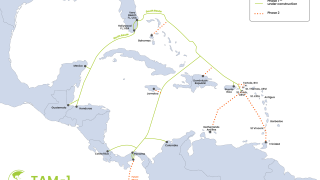Details revealed by TIM show that the four, and now five, companies want to create a “joint European ecosystem” for mobile communications, with an action plan to be set out within six months.
The company has signed the memorandum of understanding (MoU) agreed last month by Deutsche Telekom, Orange, Telefónica and Vodafone to support the development and implementation of open solutions for future mobile networks.
Michele Gamberini (pictured), CTIO of TIM, said: “TIM’s commitment to the creation of an O-RAN ecosystem, in addition to supporting Italian companies already developing solutions for new generation mobile networks, represents a solid opportunity to ensure our country plays a leading role as a provider of technologies for the digital transformation on a European scale.”
He said that TIM’s decision to join means it “is reinforcing its commitment to contribute to the development of open RAN technology in Europe.”
The company said that the initiative “will provide strong impetus” to the introduction of new functionalities for mobile broadband networks, especially in the era of 5G, “promoting an increasingly widespread deployment and improving its management”.
TIM revealed in its announcement that the membership of the alliance is limited to operators with “operation at least in one European country” — though the terms of the MoU do not specify European Union members only, leaving room for operators from Norway, Russia, Switzerland and the UK to join.
The aims, TIM reveals, are to “provide a framework for a specific commitment to support the development of a non-fragmented global open RAN ecosystem for deployment across the European network footprint of each of the signatories, and to start operation as soon as solutions become mature enough for a given targeted use case”.
The MoU (PDF here) sets out a tight timescale for the work, with an action plan “of additional activities necessary to support the continued development of open RAN ecosystem and individual operational deployment of open RAN” due in six months.
They also explicitly commit to the O-RAN Alliance, which has 27 operator members from AT&T to Vodafone, and to “other industry initiatives, such as the Telecom Infra Project (TIP), that contribute to the development of open RAN and that aim to create a healthy and competitive open RAN ecosystem and advance R&D efforts”, says the MoU. The TIP is backed by Facebook.
The five signatories so far commit to “readiness for initial commercial deployment in limited areas” from this year. “Limited” in that sense means “rural, indoor or highway coverage”. But they say they should be ready for network-wide rollout next year.
Oh, and in case you wondered about the use of the terms open RAN and O-RAN, the MoU clarifies that “open RAN is understood as a more general term which denotes a disaggregated RAN, which is subdivided into several independent systems by using open and interoperable protocols and interfaces”, while O-RAN is the version of the “architecture as defined by the O-RAN Alliance”.






